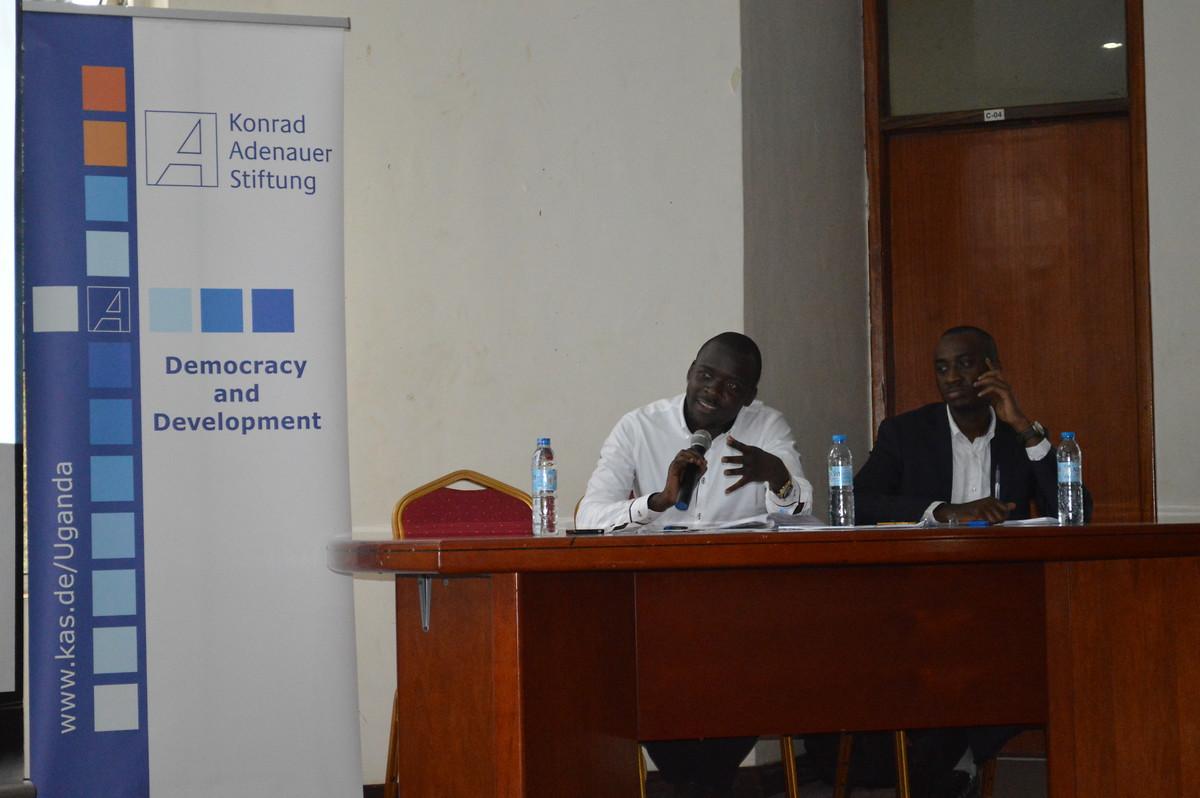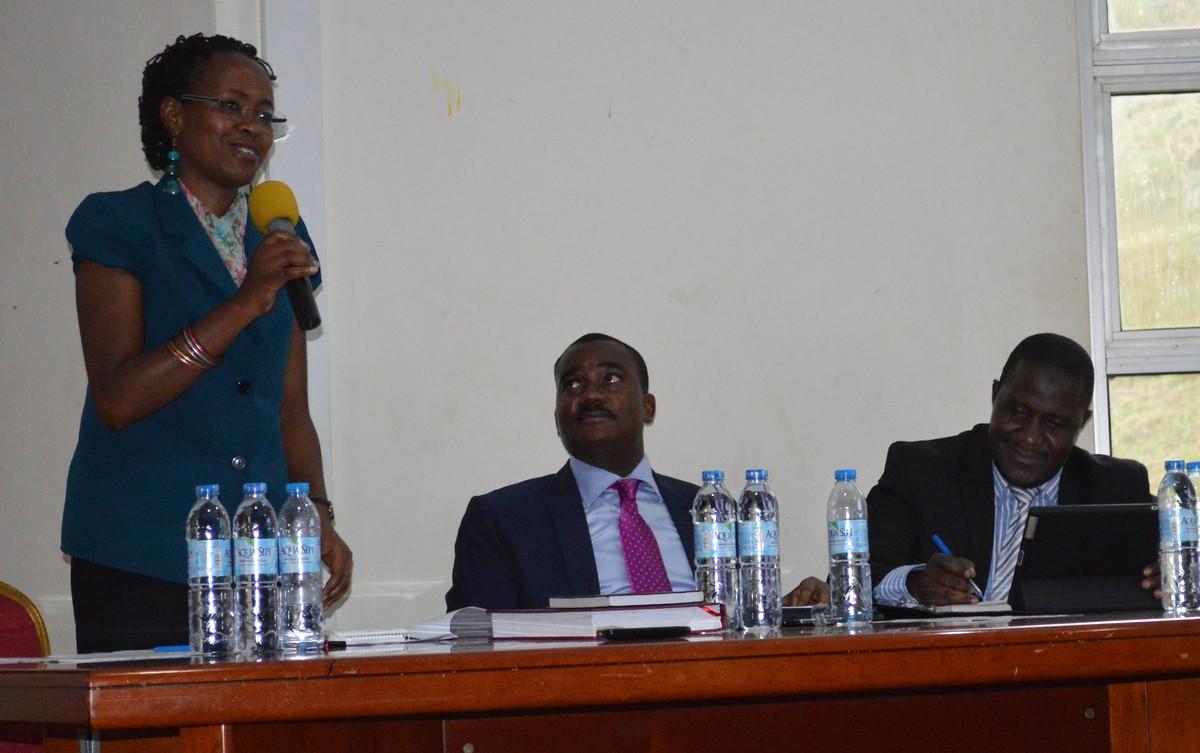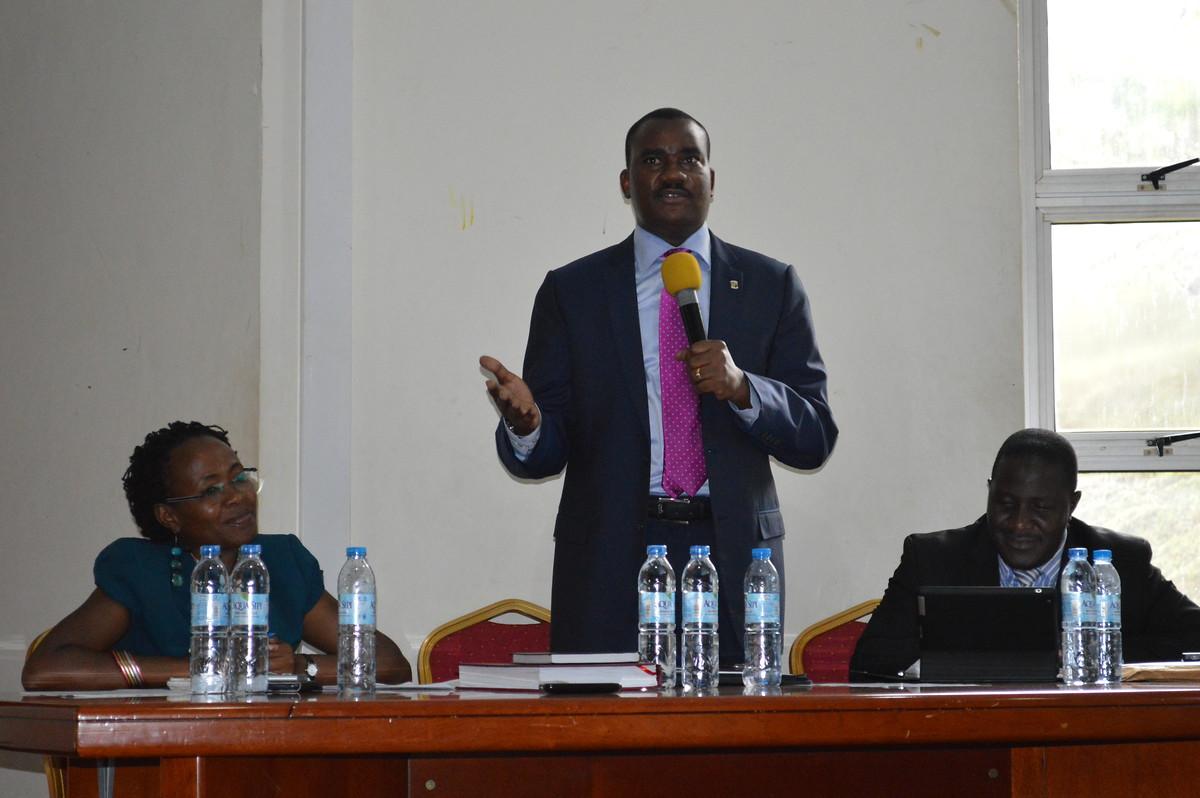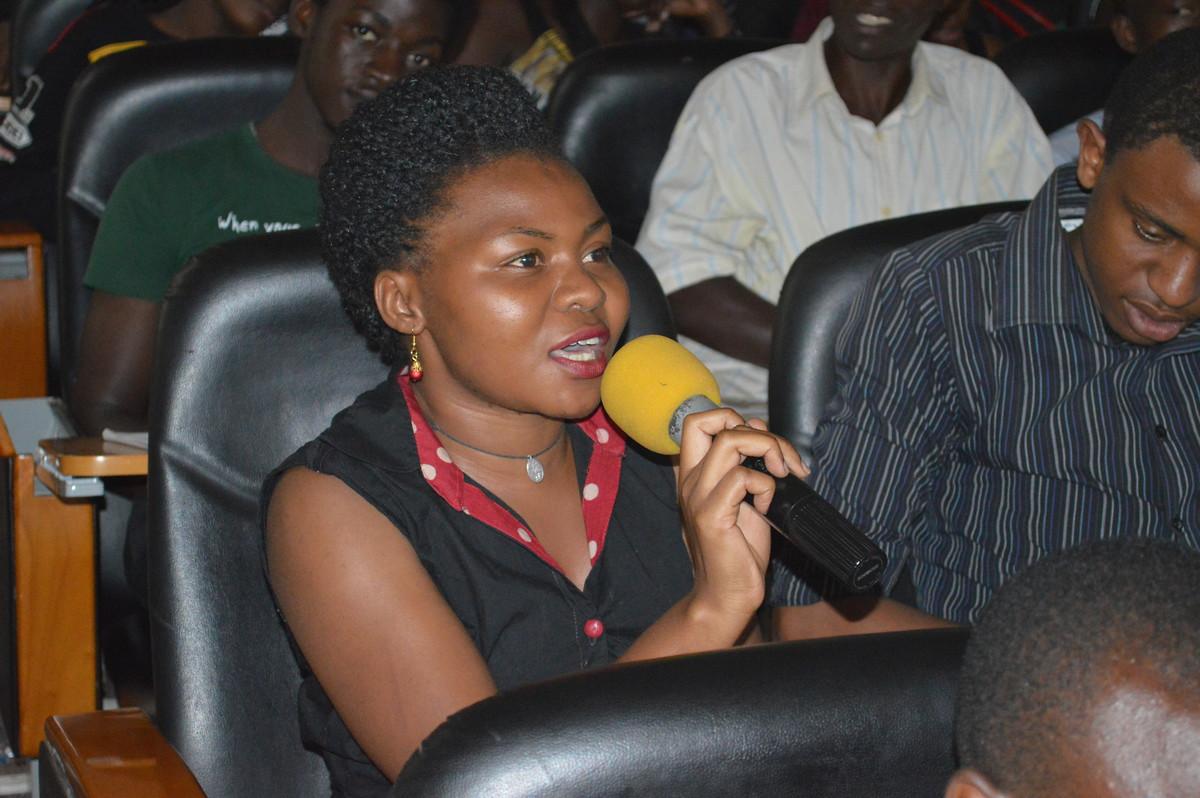Event reports
The dialogue at Makerere University discussed pre-electoral coalitions in Africa and drew attention to The Democratic Alliance, a lose opposition coalition group which was formed to combine efforts of all the leading opposition political parties in order to oust the incumbent ruling National Resistance Movement (NRM). The panel discussion consisted of Mr. Hussein Kashilingi, one of the legal minds of the NRM as well as former presidential legal advisor, Dr. Sarah Ssali, lecturer at the Department of Gender Studies at Makerere University, and Hon. Asuman Basalirwa, Member of Parliament and President of JEEMA who also works with the TDA secretariat as one of their strategists.
Mr. Michael Mugisha a lecturer at the institute of Statistics, Makerere University gave the keynote address on pre electoral coalitions (PECs), drawing examples from Kenya and Cameroon. In his discussion, Mr. Mugisha noted the difference between coalitions in developed democracies and authoritarian regimes with the former having more meaningful and successful coalitions formed after elections while the latter aim at attaining power after which the coalitions usually ended up in conflict about whom to put into which position of power. He further emphasised the importance of networks as a key base for the success of coalitions. He further noted that developed economies that have a certain level of economic liberalisation also have a successful business community which forms a reliable support base for political activities without fears of being closed down. In this case, political parties and other politicians do not necessarily have to rely on government funding, but rather also from networks within the business elite who freely choose the people they would wish to fund thus creating a fairly balanced political race. He argued that institutionally related factors such as for example ideological compatibility and election rules were central to the formation of pre-electoral coalitions. The challenge with Uganda and TDA, according to Mr. Mugisha, was the precarious nature of the institutional frameworks of the political parties and ideological bankruptcy – factors which rather painted a bleak picture for the success of TDA and any other related coalitions.
In response to the keynote, Hon. Basalirwa indicated that despite the foregone discussion about the political parties in Uganda, there was glaring thirst and desire for a change in the leadership of Uganda. In addition, he noted that the opposition in Uganda had grown over the years and there had been a growing demand from the electorate for a united opposition thus the formation of TDA. He cited the example of Nakawa Division in the last election (2011), where the opposition candidates combined got more votes than the NRM candidate who, due to the “winner takes all” electoral system, still won the election.
Mr. Kashillingi on the other hand noted that TDA was a “wrong thing” from the foundation. He argues that TDA was not rooted or grown on any serious issue but rather the interest to unseat President Museveni. Hon. Basalirwa however interpreted this assertion to presuppose that any desire to remove the NRM government from power is unthinkable or rather illegal.
From the academic perspective, Dr. Ssali argued that it was not enough to dismiss the TDA and any other coalitions in Uganda, but rather examine the underlying causes of the growing discontent within the population which she attributed to the quest for an alternative system of governance. She urged the young people who actually constitute the majority of the voters to develop deeper interest in the governance of their country.
The plenary discussion, among other things, interrogated Hon. Basalirwa’s assertion that TDA was popular basing on the high turn up of followers during the recent consultative meetings of the opposition candidates. Mr. Kashillingi remarked that crowds have never been a measure of political support but rather the election outcome, which, according to him, explained why the NRM has won all the previous elections in Uganda since 1996.
The panel was well constituted with the ruling party, the opposition, and the academics well represented. Mr. Mathias Kamp, the KAS Country Representative, gave the closing remarks highlighting why this kind of discourse is important for KAS. He noted that KAS was a political foundation with interest in politics but on a non-partisan principle. He concluded by calling on the young people to stop complaining and rather be part of the solution to the problems of Uganda by actively participating in elections.
Author: Bernard Mukhone, KAS Programme Officer










